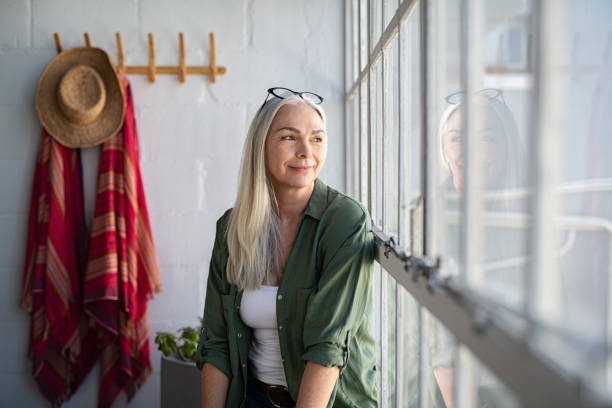
There’s no question that retirement is a major life transition. You’ll need to make some major decisions, like how you want to spend your days and whether or not you want to move out of your current domicile. But, with all the changes that come along with retirement, it’s also important to consider a few other things:
Get your financial situation under control.
The first step to building a solid retirement plan is to get your financial situation under control. This means understanding your current situation, getting a handle on any debt you may have, and making sure that you’ll be able to live off the rest of your life savings in retirement. The point is, you need to have a clear idea of your situation. For example, even if you can’t afford a home, there are different ways to build a nest egg for retirement.
Once you’ve done this, it will be easier for you to identify what type of lifestyle is important to you and where exactly that money should come from. Once these questions are answered, it becomes much clearer which investment options are best suited for attaining those goals.
Prepare for changes in your health.
While you can’t plan for the future, you can prepare for the unknown. As you think about your life in retirement, consider what may change and how that might affect your finances.
Change is inevitable—it’s a fact of life, but it doesn’t have to be a scary one! Here are some things to think about as you prepare:
- Your income may decrease or increase over time as a result of factors like health issues or job changes. Make sure your money is accessible so it can support whatever comes next in your life.
- You might need to make adjustments to accommodate any unexpected changes in health (e.g., illness or injury). If possible, try to set aside some extra money each month that could cover potential medical expenses down the road; if not possible, look into insurance options that fit within your budget.
- Think about whether other areas of life could also impact your finances—such as changing family dynamics or gender roles/social relationships among spouses/partners—and include these factors when planning out how much money will be needed each month during those periods when there may be less income coming in than normal because of those other responsibilities needing attention instead (like childcare).
Find a hobby (or two).
If you’re like most people, your retirement will be the longest stretch of time in your life without a job. While that sounds like a dream come true, it can also be pretty anxiety-inducing. After all, how are you going to fill up all that newfound free time?! Well, luckily, there are lots of ways to stay busy and engaged while still enjoying your golden years: hobbies! And not just any old hobby—the right ones can actually help keep you happy and healthy during this crazy transitional period.
Explore your options for housing.
After you’ve determined whether you need to downsize or move to a new area, it’s time to consider the type of home that would work best for your retirement. Are there any options beyond buying a single-family residence? Do condos and townhomes offer enough space and flexibility without the commitment of homeownership? Will renting out your home help fund your retirement while still providing some income when you’re ready to move on?
If so, what’s the best way to go about finding tenants? If not, how can renting out rooms help finance your retirement years? This is another area where real estate agents can be helpful—they’ll know which properties are available in different communities around the U.S., which ones offer potential rental income streams, and what kinds of tenants landlords have historically attracted in each market.
Travel the world.
Traveling the world is one of the best things you can do in your retirement. Experiences are better than material things, so why not see new cultures and make lifelong memories?
Traveling also has its benefits for mental health. It’s a great way to meet new people and make friends, which can be especially helpful for retirees who don’t have kids around anymore or aren’t as active as they once were. It’s also a way to learn about yourself, since it forces you out of your comfort zone and gives you new experiences that challenge who you are as an individual.
Keep up with technology.
As you age, you may find yourself struggling to keep up with the latest gadgets and gizmos. But there are ways to stay ahead of the curve without getting overwhelmed. One way is to pick up a new hobby or two, which can be as easy as taking an online course or learning how to use your smartphone’s camera in new ways.
Planning for retirement is more than just an investment plan; it’s about a lifestyle shift that you need to prepare for and embrace!
Planning for retirement is more than just an investment plan; it’s about a lifestyle shift that you need to prepare for and embrace!
- You need to make time for your hobbies and interests. If you’ve always wanted to be an artist, now is the time. If you’ve always been interested in learning about another culture, now is the time.
- You need to explore your options for housing. You might want somewhere big enough where you can invite friends over or host dinner parties often, but that might be hard with some of the activities listed above. Or maybe something smaller would suit your needs better—a place that could work as a writing retreat when no one else was home? Whatever option works best for you should be considered when deciding on where (or even if) you will live after retirement age has passed (i.e., the house/apartment).
- You should also consider traveling abroad during this transition period of life before settling down again! The internet makes this easier than ever before: check out flight prices around the world using useful sites.
Conclusion
We hope we’ve given you a few ideas for how to start planning your retirement. We know that it can feel overwhelming at times, but at its core, it’s just about making sure you have the right tools and resources available when the time comes. It can be easy to get caught up in the day-to-day hustle of life, but taking some time out every now and then to think about what kind of future you want is an important step towards getting there.
Published by HOLR Magazine.




